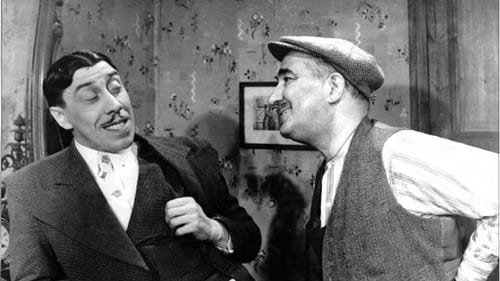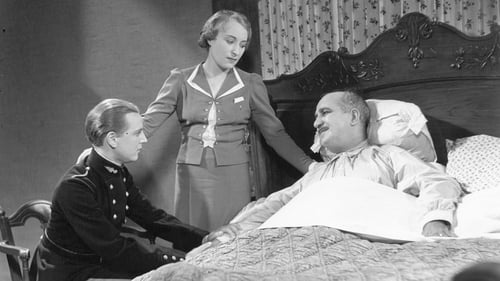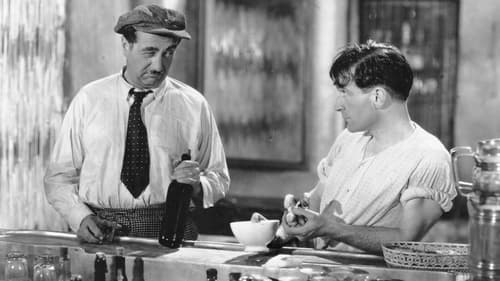Alida Rouffe
出生 : 1874-03-20, Bordeaux, France
死亡 : 1949-11-21

The guardian is engaged to a girl from a good family, but the intervention of a gypsy will make his heart lean. This one comes in fact to take revenge and will try to kill him.

Desiring to give his compatriots a taste for laughter, a comic Marseilles founds a club with friends whose joke is the reason for living and tries to breathe new life into the sleeping city.

A fairground boss is ruined. He steals his aunt's jewelry, but being chased he gives the jewelry to a couple of dancers. They are mistaken for the Morton Sisters and perform in the Folies Parisiennes with the jewels, with enormous success.

Céleste, the good priest
In this little Provencal village, a new baker, Aimable, settles down. His wife Aurelie is beautiful and much younger than he. She departs with a shepherd the night after Aimable produces his first breads. Aimable is so afflicted that he can not work anymore. Therefore, the villagers, who initially laughed at his cuckoldry, take the matter very seriously (they want the bread) and organize a plan to find Aurelie and to bring her back to the bakery.

Grocery Customer
A pompous grocer’s assistant in Marseille annoys a visiting film crew so much that they prank him with a phony acting contract; believing it to be real, the “schpountz” heads to Paris for his new career.

Jean Bonnefoy, who has a talent for singing, is unemployed. So he is very happy the day he is offered a post as a music teacher in a college for young women. But he soon realizes the job is only a mixed blessing as a group of girls have set about making life tough for him. Among them is Anny Laforcade, a student who finally changes sides, taking pity on her teacher and falling in love with him. At one point, Jean meets Zébulon, a talent agent who decides to launch his singing career. Zébulon has a far-fetched idea: He asks Anny to disappear for a few days thus making people believe that she has committed suicide out of love for Jean. The latter, who is not aware of the scheme, is devastated.


Honorine Cabanis
Honoré Panisse is dying, cheerfully, with friends, wife, and son at his side. He confesses to the priest in front of his friends; he insists that the doctor be truthful. But, he cannot bring himself to tell his son Césariot that his real father is Marius, the absent son of César, Césariot's godfather. Panisse leaves that to Fanny, the lad's mother. Dissembling that he's off to see a friend, Césariot then seeks Marius, now a mechanic in Toulon. Posing as a journalist, Césariot spends time with Marius and leaves believing tales he is a petty thief. Only after the truth comes out can Marius, Fanny, César, and Césariot step beyond the falsehoods, benign though they may be.

Sidonie
Cigalon (Alexandre Arnaudy) manages a restaurant in a small town in Provence. A chef with a high opinion of his past culinary achievements, he makes no effort to attract customers and is rude to those who venture into his establishment expecting to be fed. To Cigalon, gastronomy is the greatest of all the arts, and so he is naturally aghast when a former laundress named Madame Toffi (Marguerite Chabert) opens a restaurant next door to his. Madame Toffi does not share his elevated notions and intends to serve meals to the general public - an appalling prospect! While Cigalon's restaurant remains empty, Madame Toffi's is always busy. To prove he's the better chef, Cigalon must now start catering to the whims of paying customers or be forced out of business.

Jean, the son of Toine, a market gardener from Marseille, would marry Ginette without hesitation if he did not meet a singer, a femme fatale. But his godfather intervenes in time and unmasks the seductress who had already caused his own ruin. Jean only has to ask Ginette for forgiveness.

Comedy and misunderstandings around thwarted loves in Paris but which will end well in Provence.

Honorine Cabanis
Picking up moments after the end of Marius, this film follows Fanny’s grief after Marius’s departure—and her realization that she’s pregnant. Panisse continues courting her and embraces the baby’s impending arrival as a gift, so long as its paternity remains a secret. Fanny and Panisse wed, but after her baby’s birth, Marius returns unexpectedly and demands what he believes is still his.

Caroline
Célestin, the organist of a convent, has written and composed a light operetta under the name of Floridor. One day, the Mother Superior asks him to chaperone one of the boarders, Denise de Flavigny, who is returning home to get married. Now, Denise, for all her goody goody looks, soon proves as saucy as can be. Things get even more complicated when Célestin starts courting Corinne, the star of his operetta, to the great displeasure of a commander of dragons, the young woman's lover. Worse, the latter is none other than the Mother Superior's brother... To say nothing of Lieutenant Fernand de Champlatreux, who happens to fall in love with Denise, his fiancée that he has never seen before...!

Honorine Cabanis
César runs a bar along Marseilles' port, assisted by his 23 year old son, Marius. Colorful characters abound: M. Panisse, an aging widower and prosperous sail maker; Honorine, a fishmonger with a sidewalk stall near the bar; her daughter, Fanny, who helps her sell cockles just outside the bar; and various old salts. Friends since childhood, Fanny and Marius love each other, but Marius has a secret wanderlust: every ship's whistle stirs a longing for foreign lands. When M. Panisse seeks Fanny's hand in marriage and when a departing clipper needs a deckhand, Marius and Fanny must decide who and what they love most. César, with his generous, wise spirit, tries to guide his son.











